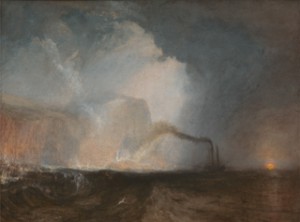CFP: ‘Poetry & Painting: Conversations’ – An Interdisciplinary Conference;
Faculty of English, University of Oxford, 23 March 2020.
You know how
I feel about painters. I sometimes think poetry
only describes.
Frank O’Hara, ‘John Button Birthday’ (1957)
The supposed similarity between poetry and painting was famously characterized in Horace’s ‘Ars Poetica’ by the dictum ‘ut pictura poesis’ (‘as is painting, so is poetry’). Yet in 1766, Gotthold Ephraim Lessing influentially argued for the limits that condition these different art forms — how could a visual scream ever be rendered linguistically?
The intense and ambivalent relationship between the so-called “sister arts” of poetry and painting has long been a subject of critical enquiry. The multiple tensions and affinities shared by these expressive forms are fruitful topics of a discussion that is currently enjoying a revival both within and beyond academia.
Co-organisers Drs Jasmine Jagger and Jack Parlett invite you to share your thoughts on this relationship for a one-day conference in Oxford. This symposium seeks to ignite and develop critical and trans-historical conversations about the interplay between the sister arts. Contributors may consider, but need not be limited to:
- Ekphrasis and ekphrastic writing
- Illustration and other “composite” modes
- Co- and inter-disciplinarity
- Gender politics
- Narrative, time and temporality
- Tone, texture, and style
- Questions of form
- Issues of historicity
- Interrelations between poetry, painting and other forms (e.g. photography and film)
- Theories of the visual and the gaze
- Interpretation and revisionism
- Colour, mood, affect, and play
Proposals are invited for twenty-minute papers, to be delivered as part of panels of three. Individual proposals (of 250 words), and panel proposals (of up to 700 words), for three papers that interact under a common theme, are warmly accepted. Creative responses are also welcome.
The conference’s plenary speakers have been confirmed as Professor T. J. Clark and Dr Kathryn Murphy. Please send proposals to jack.parlett@univ.ox.ac.uk and jasmine.jagger@ell.ox.ac.uk. The deadline for submissions is 30 November 2019. The one-day conference will take place on 23 March 2020 at the Faculty of English, Oxford. For more information, please visit www.poetryandpainting.co.uk. We welcome you to disseminate this CFP widely. This conference is organised in association with the Faculty of English, Oxford.




